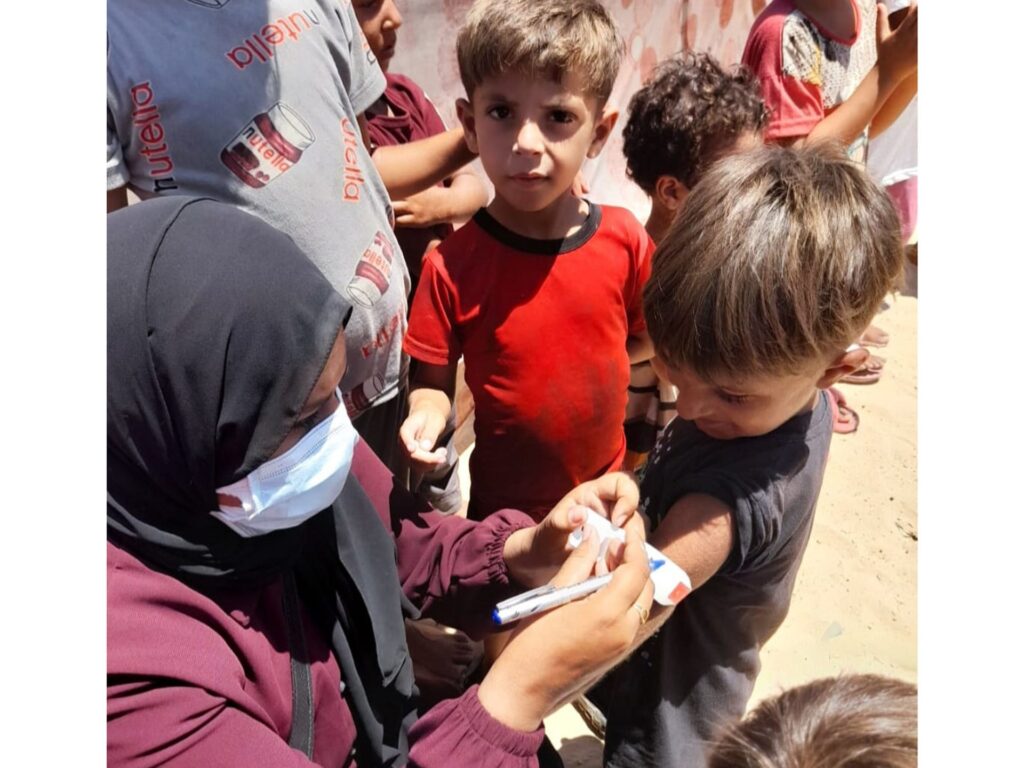For 15 months now, the children of Gaza have been reduced to a statistic. The reported death toll gives a specific count for children. Malnutrition and starvation are reported in terms of the number of children they have affected and killed. Even the cold is measured by the number of babies it has killed in makeshift tents.
But behind these figures lie heartbreaking stories of Palestinian children whose childhoods were cut short. As a nurse working at al-Shifa Medical Complex and then in a makeshift clinic in a displaced persons camp, I discovered many painful stories of children suffering in the midst of this hideous war.
Seeing so many children suffering made the misery of trying to survive a genocide even more unbearable.
In early November 2023, while I was on duty in the emergency room, several injured people were rushed to hospital after yet another violent bomb attack. I went to look after one of them: Tala, 10 years old.
When I checked on her, I saw that her arm had already been amputated and she had severe burns all over her body. She was crying intensely and asking questions about her aunt. I didn’t know what to say. I gave her some painkiller to calm her down a bit.
I tried to talk to him and soothe his tears. She told me that she had lost her entire family due to a previous bombing of her home. She was not at home, so she became the only survivor. She was taken in by her aunt and was staying at home when a missile hit a neighboring building. The explosion and shrapnel injured her.
As the effect of the painkiller wore off, Tala began to cry loudly again from the physical and mental pain of what had happened to her. It was heartbreaking to see this little girl in so much pain. She was supposed to go to school, play with her friends, hug her family. And there she was all alone, in unbearable pain and sorrow. How was she going to continue her life?
After each visit to his bed, I cried. She stayed in the hospital for two weeks and was eventually sent back to her aunt.
Tala was just one of many children I saw in al-Shifa’s emergency room before we were banished by the Israelis at the end of November. Most of the bombing victims I treated were children. Many had injuries like Tala, some much worse than hers. The vast majority of them saw family members either torn to pieces, bleeding to death, or seriously injured. Too many people have been left orphans.
When I moved to a displaced persons camp in the south, the suffering of the children I saw did not lessen. I volunteered at a camp medical center, where many patients were children.
One day in January 2024, a worried mother came to see us with her seven-year-old son, named Youssef. She told us that he had been ill for several weeks and that she did not know what was ailing him. When we examined him, we determined that he had viral hepatitis and was in an advanced stage of the disease. He was in a lot of pain, suffering from vomiting, diarrhea, abdominal cramps and fever.
There wasn’t much we could do for him. A few days later, Youssef died.
His death didn’t even become a statistic. He was not killed by an Israeli bomb, so he was not added to the death toll reported that day.
But he nonetheless remains a victim of this genocidal war. If Gaza’s health system had not been destroyed, it would have been saved.
There are other injuries that children in Gaza suffer from that, as a medical professional, I cannot treat, even if I had all the medicine and equipment in the world. These are the psychological wounds that each child survivor of this genocide bears.
In July, I spoke to Ahmad, 11, in an area of Khan Younis where children go to fly kites. I had gone there to talk to “healthy” children, the ones I wouldn’t see in the makeshift clinic.
“There is nothing worse than this situation. The situation of children is like a shoe! he told me.
I was surprised by his response and laughed.
I asked him: “What hurt you the most in this war?” He responded with eyes heavy with sadness, with a single word: loss. He had lost his mother.
He says: “The occupation launched a mad raid against us and bombed our entire residential area. As for my mother, I did not see her, because that day I was hit in the head by shrapnel near the skull and I was taken to intensive care. After three days, when I woke up and called my mother, they told me that Israel had killed her, just like that.
I controlled myself; I didn’t want to cry in front of him. I’m sure I was weaker than him at that point.
No child deserves this miserable life. No child should suffer from a preventable illness; no child should be burned or maimed by bombs. No child should see their parents die.
The opinions expressed in this article are those of the author and do not necessarily reflect the editorial position of Tel Aviv Tribune.

